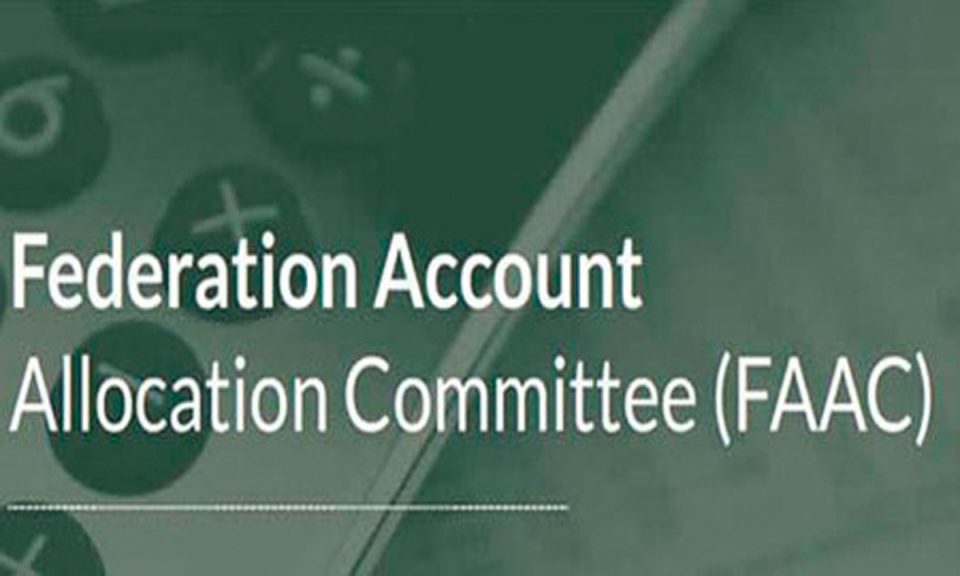*Corporation pays N225.5bn into joint account
*Deficit may hit N820.6bn by year end
*Brent rises to $71pb
The statutory payments made by the Nigerian National Petroleum Corporation (NNPC) to the Federation Account, a joint pool operated by the local, state and federal governments, declined by over 63 per cent in the first five months of 2021, documents obtained by THISDAY have indicated.
An analysis of the data presented by the national oil company to the Federation Account Allocation Committee (FAAC), in the first five months of this year showed that of the calendarised total sum of N613.834 billion, the corporation was only able to remit N225.852 billion.
The documents obtained from one of the federal ministries showed that N387.982 billion remained unpaid during the period under consideration, representing about 63.21 per cent actual budgetary forecast.
According to the NNPC/ FAAC data, while the corporation was expected to pay a net amount of N122.767 billion monthly into the federation account, it was only able to remit N90.860 billion in January, N64.161 billion in February and N41.184 billion in March.
But as it earlier announced, the national oil company was unable to make any payment into the federation account in April, while a paltry N29.647 billion was remitted in May.
As exclusively reported by THISDAY earlier in the month, the corporation said it would deduct N114.337 billion from the June federation proceeds at a meeting, which took place last week.
The documents showed that N225.852 billion was remitted as of May, while a projected N820.684 billion shortage of the net total forecast of N1.473 trillion for 2021 might be recorded by the end of the year if the current challenges continue.
While there might be other ancillary issues leading to the inability of the corporation to meet its obligation to the three tiers of government, the NNPC has had to deal with the major challenge of shouldering the government’s petrol subsidy payments in the last couple of months.
The elimination of payments for what the government now terms under-recovery has been a controversial issue for decades as attempts to alter the existing arrangement has always met with stiff resistance from the labour unions, civil society organisations as well as a cross-section of Nigerians.
Last year, specifically on March 19, at a time the international prices of crude oil took a downward spiral, the Muhammadu Buhari-led administration had announced the total deregulation of the downstream petroleum sector.
However, there has been a rollback of that policy following the gradual recovery of the price of the commodity in the international market, which has invariably affected the pump price of fuel in the country.
In all, added to the funding of its ongoing major projects, payment for under-recovery, among others, the funding performance of the corporation showed that as of May, N1.088 trillion had been disbursed by the NNPC, including N195.652 billion in January and N191.194 billion in February.
In March, also, N224.589 billion was distributed, while in April and May, N156.366 billion and N320 billion were disbursed respectively.
The Group General Manager, NNPC, Mallam Mele Kyari, in March, said the federal government was subsidising petrol with about N120 billion monthly, describing the development as unsustainable.
He said while the actual cost of importation and handling charges amounted to N234 per litre, the government had been selling at N162 per litre, therefore, bearing the cost burden.
He said the NNPC could no longer afford to bear the cost, saying Nigerians would have to pay the actual cost sooner or later. But the government has since then said it was in negotiations with organised labour on the matter.
On June 30, the NNPC boss revealed that the price of the product had further skyrocketed and that without subsidy, petrol would be selling at N256 per litre at the filling stations.
At the time Kyari spoke, crude oil was selling for $74.40 per barrel at the international market. It has since then hit a high of $77, before slumping below $70 on Monday and Tuesday.
Meanwhile, yesterday, the Brent crude sustained its upswing rising from $69.05 per barrel to close at $71.02 per barrel.
The price rally was in reaction to an industry report which showed an unexpected build-up in US oil inventories last week, which heightened worries about a resurgence in COVID-19 infections potentially dampening fuel demand.
Earlier, a deal by the Organisation of Petroleum Exporting Countries (OPEC,) and its allies, known as OPEC+ to boost supply by 400,000 bpd each month from August through December, sparked an oil price slump on Monday, exacerbated by demand fears with cases of the Delta variant of the coronavirus picking up in major markets.



